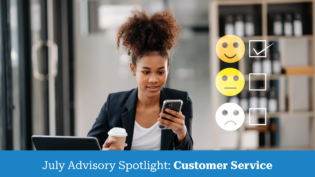Make It Personal: Learn More About Your Customers Without Intruding

According to research highlighted by SEO expert Eric Sachs, 60% of consumers would like retailers to provide them with personalized, real-time offers. Conversely, however, only 20% of consumers are willing to share their location, while a mere 14% are content with revealing their browsing history.
Yes, you could say that consumers want to ‘have their cake and eat it’ – but giving them a slice of this edible cake is easier than you might have realized. Here are just a few clever ways you could educate yourself on your customers without them feeling as though they are being spied on.
When you directly ask for data, clarify why
Through doing this, you can establish a culture of trust that puts consumers at ease. As a general rule, you should ask only for the data you know you would actually need in order to provide consumers with the kind of personalized content they want.
When asking for data, you should also let people know why you seek it – and direct them to a comprehensive privacy policy published beforehand on your brand’s website.
Hold webinars to educate and inform consumers
The word ‘webinar’ is derived from the words ‘web’ and ‘seminar’, as CBS News explains – encapsulating the educational nature of this type of online event.
The genius of holding a webinar for marketing purposes is that you could, in the webinar, briefly mention products or services without coming across as a salesperson. Furthermore, when you use the right online webinar platform, you can gather a wide range of analytical data about the event’s attendees.
Conduct surveys, quizzes and polls
This, too, could be easily and seamlessly done in a webinar context – but you would certainly have many opportunities elsewhere to do it.
You could hold polls on your brand’s Facebook and Twitter pages – and perhaps set aside a large part of your website for posting a long-form survey or quiz. These surveys, quizzes and polls could, for example, ask about buying preferences without seeking personal identification details.
Run fun competitions and giveaways
Naturally, everyone loves free stuff – and, if the prizes are sufficiently tempting, many people could be willing to give you a lot of their information simply to be in with a chance of winning them.
If you do put on a contest, you should make sure it is genuinely enticing enough to attract people – so much so that they could be keen to participate even if they reckon that their likelihood of winning anything is actually remote.
Reach out to customers at the right time
Marketing expert Neil Patel advises readers of his site to “send timely content that fits the customer’s current needs”. Doing this could make the customer more receptive to sharing data.
So, if you have an online store where a certain registered customer tends to buy a particular product every month but has recently stopped doing so, you could send this person an email offering them – in exchange for more of their data – a limited-time discount on the product.
1674 Views














